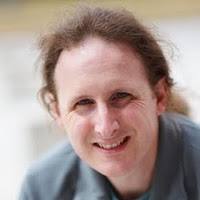Introductory Haskell / Concurrent Haskell - Day 2
- Jeremy Gibbons University of Oxford
- Simon Marlow Microsoft Research
Abstract
Pure functional programming is about programming with expressions rather than actions, data rather than control. Many programs are more naturally expressed in this way, and functional programs are often an order of magnitude shorter than equivalent imperative programs - just as programs in traditional high-level languages like C and Java are typically much shorter and clearer than their equivalents in assembly language.
Many exciting ideas in mainstream programming arose first in FP, including garbage collection, generics, closures, and list comprehensions. FP is a fertile laboratory for language innovation, and familiarity with FP is good preparation for future developments in programming. In particular, multicore chips and cloud computing architectures are forcing us all into dealing with concurrency, and there is good evidence that the breakthroughs here will come from FP, with its emphasis on immutability and independence of evaluation order.
Important Note
This is a two-day tutorial. When you register for this tutorial, you register for both days. You are welcome to look around other events on these days, but you will have to skip part of the tutorial to do so.
Content
This two-day tutorial introduces the essentials of Haskell, a pure lazy functional language with a mature compiler, a wealth of libraries, and an active community. We will focus particularly on concurrent programming - handling multiple interactions at the same time - which is increasingly important in a wide range of applications today, from GUI programming to server-side web development. There will be a balance between lectures and exercises, so that you will be exposed to both the theory and the practice of FP.
Day 1 will focus on the basics of FP with Haskell, introducing the concepts necessary to get you writing simple programs, including an introduction to monads. On Day 2 you will get a little taste of the joys of concurrent programming in Haskell. By the end, you will be writing some simple (but real!) Concurrent Haskell programs. We will also cover some of the practical aspects of day-to-day programming in Haskell, such as working with third-party libraries.
Jeremy Gibbons

Jeremy Gibbons is Professor of Computing at the University of Oxford, and has been a FP enthusiast for twenty five years. For the last thirteen of those, all his teaching has been to professional software engineers on the part-time masters' programme at Oxford, of which he is currently Director. Among other roles, he is also an Editor of the Journal of Functional Programming, with special responsibility for the Functional Pearls column; Chair of IFIP WG2.1 on Algorithmic Languages and Calculi; and Vice-Chair of ACM SIGPLAN.
Simon Marlow

Simon Marlow is a developer at Microsoft Research in Cambridge. He has been one of the two lead developers of the Glasgow Haskell Compiler over most of its lifetime. Simon is responsible in particular for GHC's highly-regarded multicore runtime system. When he is not developing GHC, Simon also contributes to the functional programming languages research community, and has a string of papers on subjects ranging from garbage collection to language design. In recent years Simon's focus has been on making Haskell an ideal programming language for parallel and concurrent applications, both by developing new programming models and building a high-quality implementation.
Preparation
Please bring a laptop to the tutorial. Ideally, you should install the required software on your laptop before the tutorial. If that fails, we'll have a machine on-site for you to connect to. In that case, make sure to have an RDP client (a client for Microsoft's Remote Desktop protocol) installed on your laptop, so you can connect to our on-site machine.
If you have problems or questions, please contact Mike Sperber (sperber(at)deinprogramm(dot)de).
Installing the prerequisite software
First, download and install the Haskell Platform.
Run the following commands:
cabal update cabal install HTML xml